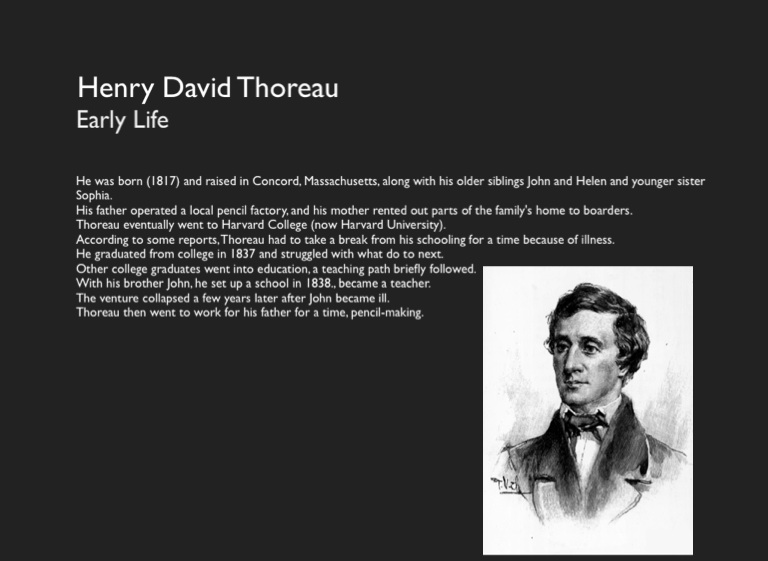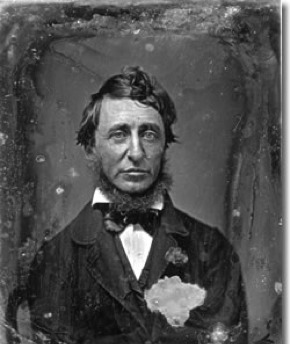Henry David Thoreau

Sign up for FlowVella
Sign up with FacebookAlready have an account? Sign in now
By registering you are agreeing to our
Terms of Service
Loading Flow


His Late Years
After leaving Walden Pond, Thoreau spent some time looking after Emerson's house while he was on tour in England.
He soon took to lecturing himself. Still fascinated with nature, Thoreau wrote down his observations on plant and wildlife in his native Concord and on his journeys.
He visited the woods of Maine and the shoreline of Cape Cod.
To support his cause, he wrote several works, including the 1854 essay "Slavery in Massachusetts."
Thoreau also took a brave stand for Captain John Brown, a radical abolitionist who led an uprising against slavery in Virginia.
In the 1850's he became an activist against slavery and helped slaves escape along Underground Railroad.
Thoreau rose to defend him with the speech "A Plea for Capt. John Brown," calling him "an angel of light" and "the bravest and humanest man in all the country."
In his later years, Thoreau battled an illness that had plagued him for decades. He had tuberculosis, which he had contracted decades earlier.
To restore his health, Thoreau went to Minnesota in 1861, but the trip didn't improve his condition.
He finally succumbed to the disease on May 6, 1862 at the age of 44.
